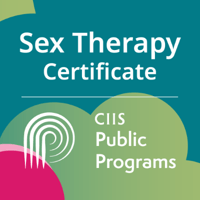Do you wonder if your bedroom concerns are more than just a passing phase? Sexual health is a central part of a person’s overall well-being, yet many people hesitate to seek therapy when issues arise. Whether you’re struggling with intimacy, experiencing physical difficulties, or simply want to improve your sexual relationship, understanding when to seek help can be the first step toward doing life (and sex) better.
Common Sexual Issues That May Require a Sex Therapist
Sex issues can range from emotional barriers to physical dysfunction, and they can have a significant impact on your life. Sexual problems are more common than you might think, affecting people of all ages and backgrounds.
The most prevalent sexual concerns that get people to see a sex therapist are:
- Lack of desire or “mismatched libidos”
- Erectile dysfunction or difficulty maintaining an erection
- Premature ejaculation or delayed ejaculation
- Pain during intercourse, such as vaginismus
- Difficulty achieving orgasm
- Sexual anxiety or performance anxiety
- Intimacy issues related to past trauma or abuse
These problems can stem from various factors, including medical conditions, stress, relationship dynamics, or a combination of these elements. It’s important to recognize that experiencing sexual difficulties doesn’t mean you are broken. However, when issues start to impact your quality of life, it may be time to consider sex therapy.
Insights from Sex Therapy Professionals on When to Seek Help
As a sex therapist, many clients we meet have been struggling with sexual issues for months or even years before coming to therapy. So many people struggle to talk about sex, especially if they feel shame or embarrassment about a perceived sexual problem. That is why it can be so helpful to talk with a professional in a safe, judgment-free zone.
Here are some key signs that it might be time to consult a sex therapist:
- Problems are persistent. We always don’t knock it out of the park in every sexual encounter but if you feel like your performance or pleasure is impacted more frequently, professional interventions may be helpful.
- Relationships are suffering: When sexual difficulties are causing tension, arguments, or a lack of intimacy in your relationship, a sex therapist can help facilitate communication and provide strategies for reconnection.
- Emotional distress: Anxiety, depression, or low self-esteem can impact your sexual health. Therapy can address both the emotional and physical aspects of your concerns.
- Life transitions: Major life changes such as having a baby, menopause, or recovering from an illness can affect sexual function. A sex therapist can help you navigate these transitions.
- Exploring identity or desires: If you’re questioning your sexual orientation, gender identity, or exploring new aspects of your sexuality, a sex therapist can provide a safe space for self-discovery.
Effective Approaches in Sex Therapy for Various Concerns
Sex therapy is talk therapy. As a sex therapist, there is no one-size-fits all approach to helping a client explore their sexual concerns. Sex therapy incorporates a variety of techniques and strategies to help you reach your goals. Here are some common approaches:
- Cognitive Behavioral Therapy (CBT): This therapy intervention helps identify and change negative thought patterns and behaviors that may be contributing to sexual issues, such as performance anxiety.
- Sensate Focus: These structured touching exercises can teach us to slow down and learn new aspects of erotic sensation. This can help both individuals and couples reconnect physically and emotionally without the pressure of sexual performance.
- Communication Techniques: Let’s talk about sex! Many sexual issues are due to poor communication about what “turns us on” and “what turns us off.” Sex therapists teach people how to express their needs and desires effectively.
- Mindfulness Techniques: Learning to be present in the moment can reduce anxiety and enhance sexual experiences.
- Education and Information: Many of us did not have adequate sexual health education. Simply providing accurate information about sexual anatomy, arousal and desire functions, and what are “normal” differences can alleviate many people’s concerns.
Sexual health is an integral part of overall well-being, and seeking help for sexual concerns is a brave first step towards a more fulfilling life. Remember, you don’t have to face sexual difficulties alone. Take the space you need to explore your feelings and experiences in a low-pressure, non-judgemental environment so you can feel empowered to decide how to make change in your life – then go out and do it with confidence. Book a consultation today. Let’s work together to address your concerns and help you achieve the sexual well-being you deserve.





